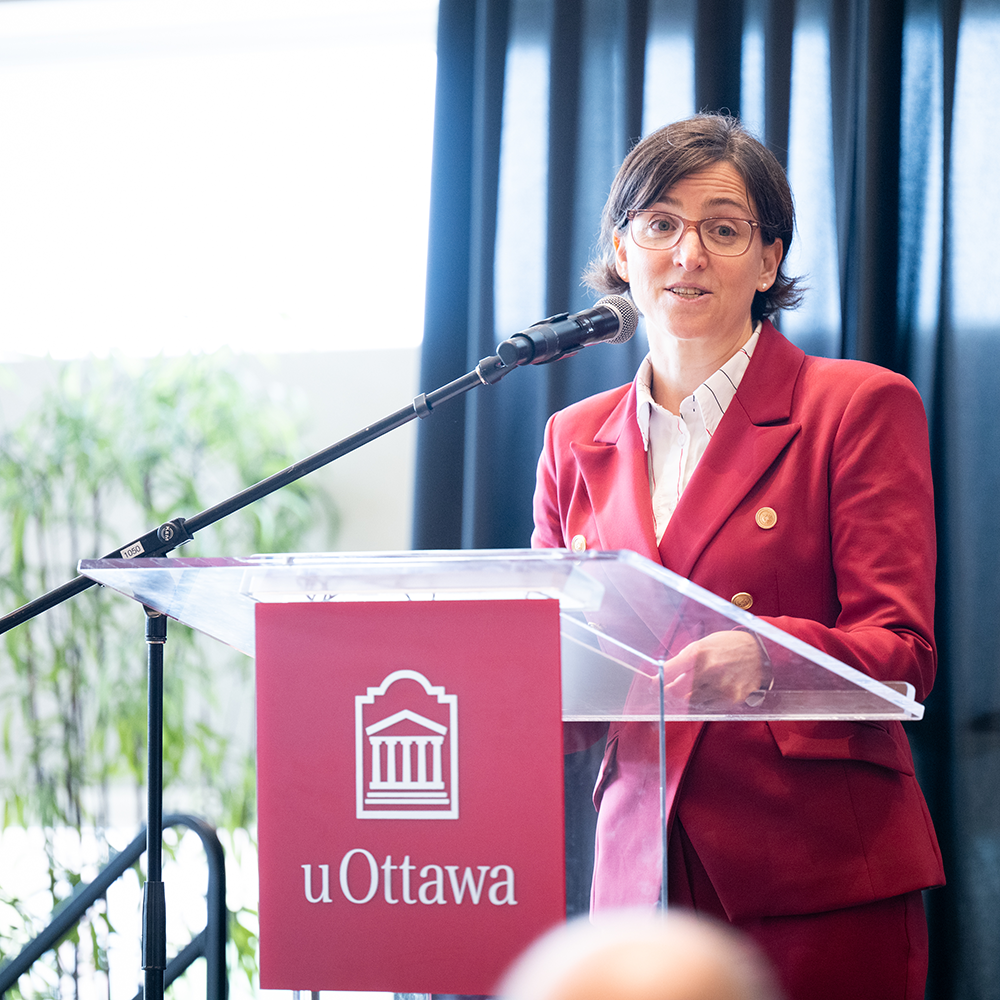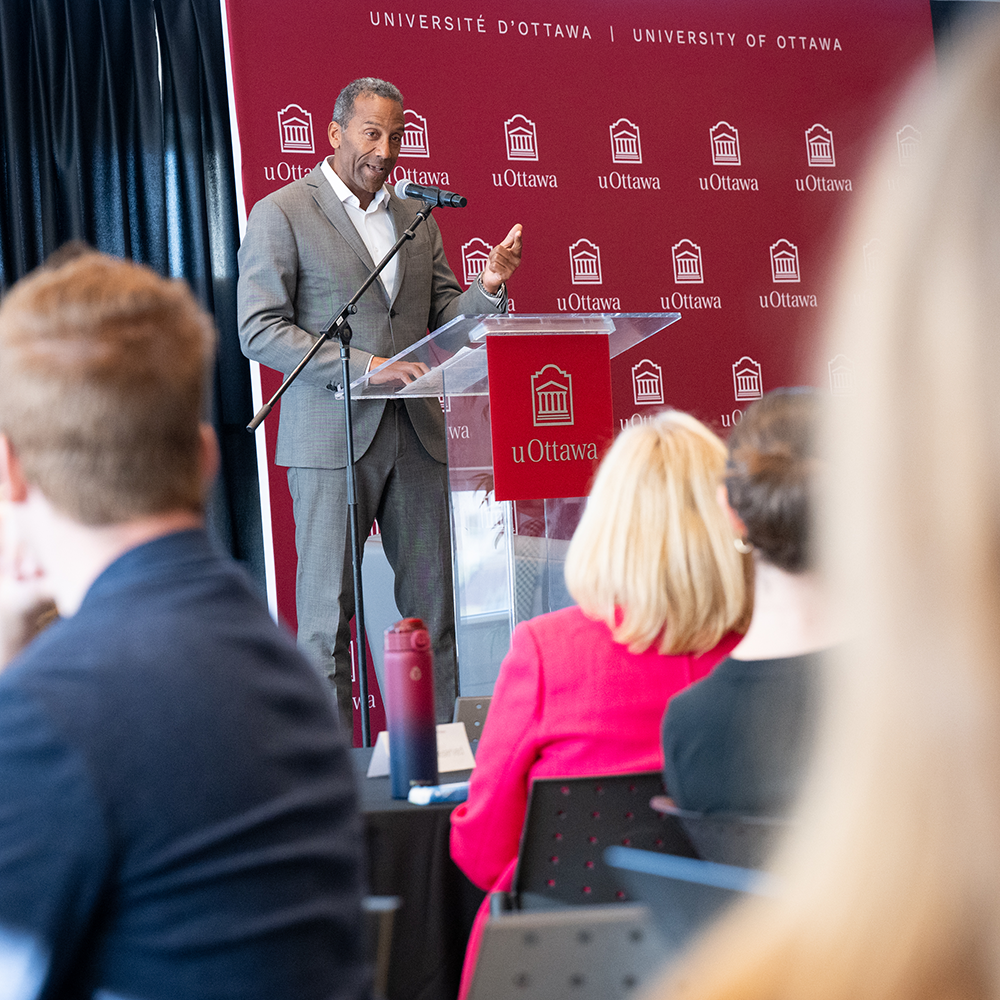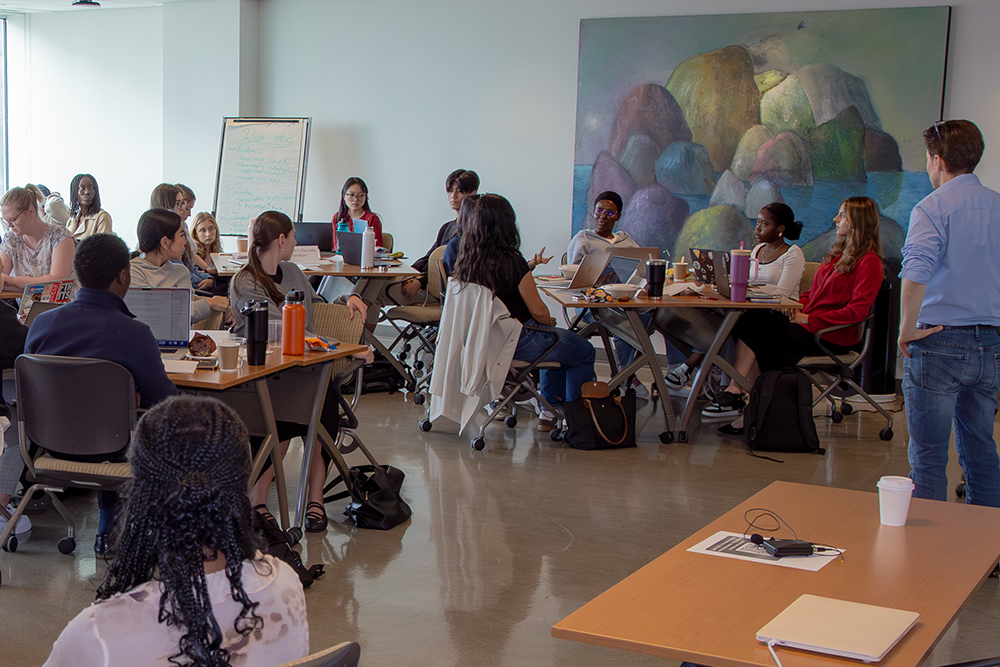Regarding the launch, University president and vice-chancellor Marie-Eve Sylvestre said the program will equip students across various fields of study to lead Canada’s workforce in a global and green economy through experiential learning, research, curriculum innovation and community engagement.
Sylvestre highlighted the academy’s interdisciplinary approach as central to uOttawa’s mission. “The Green Academy demonstrates the University of Ottawa’s commitment to using interdisciplinary learning to draw on the expertise of each faculty to find solutions,” she said, pointing to plans for Telfer to collaborate with the Faculty of Engineering to share resources and embed sustainability across their curricula.
“Put simply, the Green Academy will help students at uOttawa become sustainability leaders,” Sylvestre said. “That way, they can move easily into the work world, lead a green transition and build a foundation of sustainable business in Canada and around the world.”

“The Green Academy will help students at uOttawa become sustainability leaders”
Marie Eve Sylvestre
— President and Vice-Chancellor
A partnership rooted in shared values
Sylvestre thanked RBC and RBC Foundation for their visionary support, noting that RBC values leaders across sectors—policymakers, scientists, artists and business leaders—who work together to promote environmental responsibility and teach the next generation that planet-conscious behaviour creates prosperity for all.
Devinder Gill, RBC’s regional president, outlined to students the aim of a $2 million donation from the RBC Foundation to promote the academy’s vision. Her message was direct: “You will gain a strong foundation in sustainable business and systems thinking, while working with industry partners to make a real difference.”
Professor Daina Mazutis, Green Academy director and Telfer’s new director of sustainability, opened the event by reminding attendees that this launch represents not an arrival but “a continuation of momentum—weaving sustainability into the DNA of teaching, research and community engagement.”
Telfer dean Stéphane Brutus challenged students to bring “curiosity, creativity and courage” to the innovation sprint, emphasizing that the work is much more than an academic exercise. “This is about equipping you to lead cross-sector innovation that moves beyond the classroom into communities and industries that need it most.”

“This is about equipping you to lead cross-sector innovation that moves beyond the classroom into communities and industries that need it most.”
Stéphane Brutus
— Dean of the Tefler School of Management
Student projects can lead to systemic change
The academy’s vision was articulated in a panel on sustainable food systems. Alida Burke, a Telfer alumna and co-founder and CFO of Growcer, explained to students how her idea developed by participating in Enactus, a student-led, non-profit organization, is now empowering over a hundred communities across North America to grow fresh food locally.
Sylvie Cloutier, president and CEO of CTAQ (Conseil de la transformation alimentaire du Québec), shared a food industry perspective, reminding students that their ideas must grow, adapt and meet the urgent needs of Canada’s agri-food sector. Gayle Corcoran, senior director of social impact at RBC, explained the role of funders in de-risking bold ideas and giving youth-led innovation the chance to scale.
The discussion followed a clear track: today’s student projects can become tomorrow's systemic solutions when supported by the right partnerships and infrastructure.

The innovation sprint
In the days following the launch, nine innovation sprint student teams worked directly with CTAQ, guided by Professor Sandra Schillo. The Professional Development Institute opened its space as host and incubator, providing both expertise and tools. The sprint turned from exercise into laboratory, a place where students could apply systems thinking to real-world challenges.
A few distinct themes emerged from the nine groups participating in the innovation sprint, many finding innovative ways to reduce food waste, others using apps to tackle food insecurity. UglyFood proposes to remarket low-cost fruit and vegetables rejected for cosmetic reasons and Milli-eats champions the concept of consuming long-lasting and versatile product inputs that can be enjoyed safely by all—insects!

About the Green Academy at Telfer
The Green Academy is a cross-campus initiative at uOttawa’s Telfer School of Management, advancing sustainability through student-led action, faculty innovation and community partnerships.
The Green Academy offers students hands-on courses, innovation sprints and community projects. Faculty are supported in integrating sustainability in their teaching and research, building bridges across disciplines. Industry and community partners collaborate to tackle real-world challenges and pursue opportunities to accelerate low-carbon solutions and energy transitions.
The Green Academy represents our shared commitment to developing the innovation and talent needed for Canada’s energy future.
